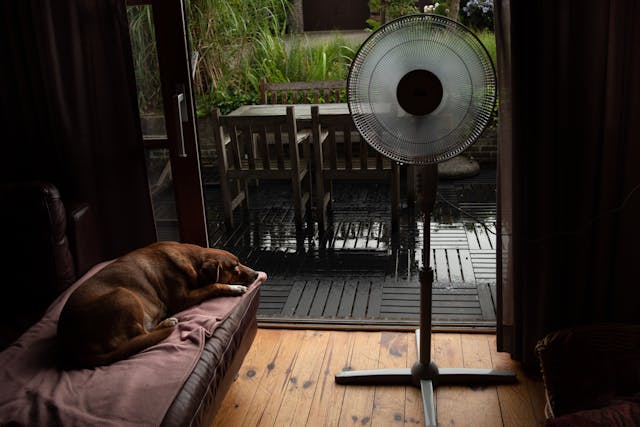As climate change intensifies the frequency and severity of heat waves, the search for safe and accessible cooling methods, especially for vulnerable populations like older adults, becomes increasingly urgent. While fans are often recommended as cost-effective and simple solutions, this study suggests their cooling benefits might be overestimated.
The research, led by post-doctoral fellow Robert Meade at the Human and Environmental Physiology Research Unit under the direction of Dr. Glen Kenny, a professor of physiology at the Faculty of Health Sciences, provides critical insights. Meade explains, “Fans do improve sweat evaporation, but this effect is not strong enough to significantly lower the body’s internal temperature in very hot conditions (above 33-35°C). In older adults, who may have a diminished ability to sweat, fans offer even less cooling benefit. In fact, even for younger adults, fans deliver only a small fraction of the cooling power that air conditioning provides.”
The study underscores the critical role of health organisations in advising against fan reliance during extreme heat, particularly for older adults and those at higher risk of heat stroke and other heat-related health issues. Instead, the focus should be increasing access to alternative cooling solutions, such as air conditioning, and exploring ways to make these options more accessible and environmentally sustainable.
Using “human heat balance” modelling techniques developed in 2015, the research team extended these models to estimate core temperature under various conditions. This approach allowed them to compare the expected effects of fan use across a wide range of scenarios. Meade notes, “Results from the 116,640 alternative models we produced in sensitivity analyses indicated that fans likely do not significantly reduce core temperature in high heat or match the cooling effectiveness of air conditioning. Comparisons with more advanced modelling techniques and laboratory heat wave simulations supported this conclusion.”
While fans can provide air circulation and may be effective in moderate temperatures, they are insufficient in extreme heat. Public health authorities have an essential role in this context. Meade emphasises, “Maintaining a cool indoor temperature is vital for vulnerable individuals, but strategies like air conditioning can be costly and environmentally damaging. It is crucial to improve the accessibility and sustainability of air conditioning and other forms of ambient cooling to protect those in need. Fans can still play a role in cooling at lower temperatures, reducing the need to set air conditioners to very low temperatures. However, in extreme heat, a fan alone is insufficient.”
This study underscores the need for more robust cooling strategies and highlights the limitations of fans in combating extreme heat, urging a shift towards more effective and sustainable solutions.
More information: Robert D Meade et al, A critical review of the effectiveness of electric fans as a personal cooling intervention in hot weather and heatwaves, The Lancet Planetary Health. DOI: 10.1016/S2542-5196(24)00030-5
Journal information: The Lancet Planetary Health Provided by University of Ottawa








